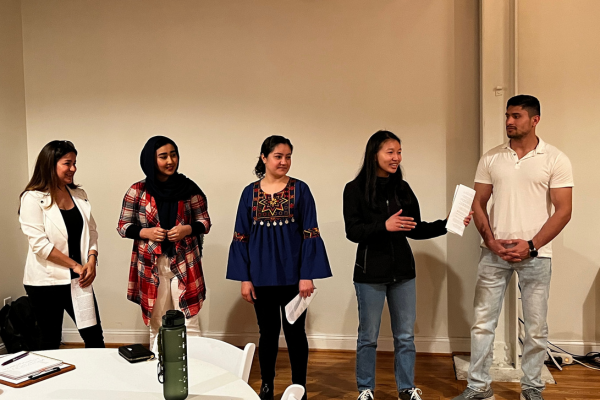By: Sue Mar
This is the third post in a the Refugee Youth Voices series that is uplifting the voices of young people with refugee- and immigrant-backgrounds.
Highlights:
- This post is part of the Refugee Youth Voices blog series in partnership with the Refugees Pursuing Education And Community Excellence (R_PEACE) coalition.
- Students from R_PEACE are sharing their experiences from having a refugee background and now being in the United States.
- Sue Mar talks about elements of her language and culture growing up, and how she started to understand past experiences once moving to the USA.

My name is Sue Mar and I grew up in Burma, a country in Southeast Asia. I arrived in the United States when I was 14 years old. I want to share more about my original language and culture growing up.
Language & Culture
Karenni has been a spoken language for generations in my homeland, although it has only been officially written for 40 years. The Karenni people’s cultural and historical traditions were solely passed down from father to son, therefore, they missed out on a lot of history since it was never written.
My grandparents, for example, spoke Karenni but never wrote it down. It was only passed down to my mom as a spoken tongue. My mother only taught me how to communicate in languages, and I never learned how to write them when I was younger.
To me, this creates a language gap because people cannot:
- Learn about their own culture,
- Document their history, and
- Learn from their mistakes so that they do not repeat them.
Even certificates of birth or death are uncommon, unless you are raised in certain religions.
Understanding Past Experiences
Because Karenni is a language that has not been written for very long, it is hard to document our long history, or prove that other people did not see or go through certain paths. But the struggles and trauma are real. I have seen with my own eyes some of the suffering the Karenni people faced at the hands of the Burmese military.
When my family and I arrived in refugee camps, we all went through different struggles because of our ages. I had never heard of the term “traumatize” until I attended a community college event, but I now understand what that means. I understand why I react in certain situations in the manner I do and it is because I have been traumatized.
For example, during the Fourth of July, many Americans will be celebrating with their families. For me, the sounds of fireworks trigger memories of conflict from my homeland. It reminds me and my family of gunshots. I wanted to run and hide the first year we arrived in the United States because we did not know about the July 4th traditions or understand how they would affect our past experiences.
More and better education may be important in these cases, and I will share more about my experiences in 3 countries’ educational systems in my next post!
Stay tuned to this Refugee Youth Voices blog series to read more from Sue Mar on her experiences in educational systems from country to country!
Please note that pseudonyms are being used to protect the student writers and their family’s safety as part of this Refugee Youth Voices blog series.
If you have any comments or questions about this post, please email Youth-Nex@virginia.edu. Please visit the Youth-Nex Homepage for up to date information about the work happening at the center.
Author Bio: Sue Mar is part of a group of college students from refugee-backgrounds that formed a coalition called R_PEACE (Refugees Pursuing Education And Community Excellence). R_PEACE creates content by using a critical literacy perspective, telling their counter-stories regarding access and entry into college, and disseminating information. The goal is to increase access to college for other refugees via three avenues: live speaking events in non-profit organizations serving refugees, a multilingual brochure, and through social media.
